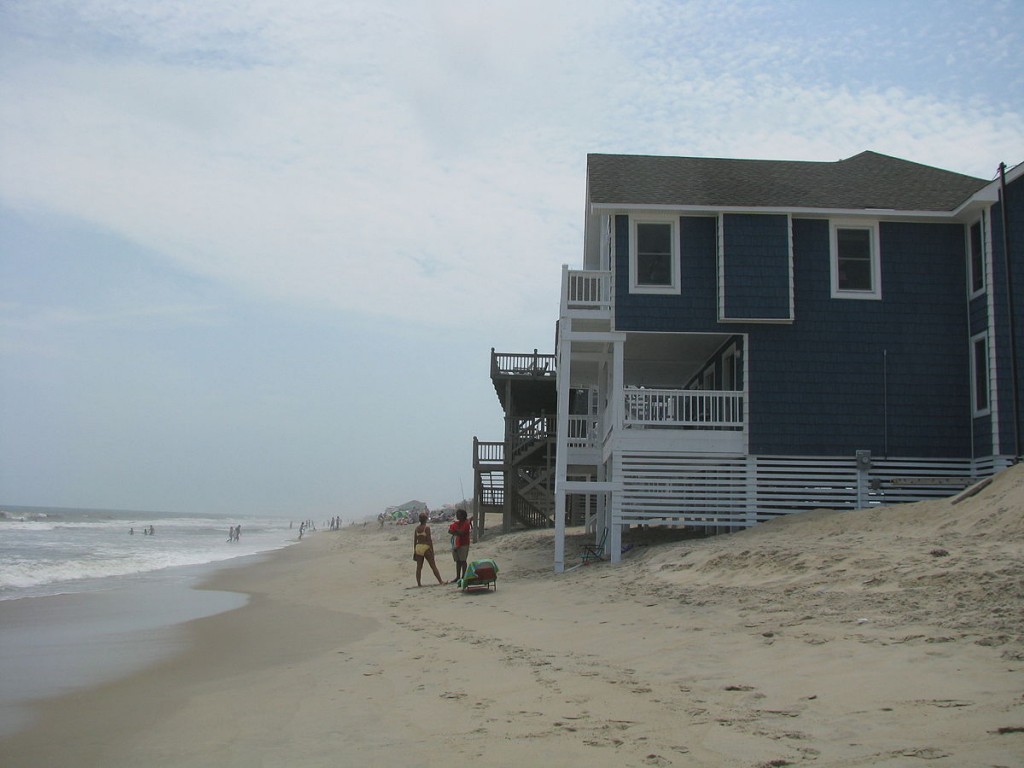Since the start of the Obama administration, the primary tactic used by environmentalists to advance their agenda is primal screaming. The earth is doomed, they say, and global warming is inevitable. Every weather event—rain, drought, heat, cold—is firm and certain proof of planetary doom that can only be stopped by draconian energy cuts. Cross an ocean on an airplane and you’re ravaging the earth. Question this litany and you’re a tool of the Koch brothers and Big Oil.
This continued screaming has ensured that debate over environmental issues is, increasingly, no longer possible because there is no middle ground. Personally, I am a “lukewarmer” like Matt Ridley and Bjorn Lomborg. I believe the planet is warming, though not as quickly as environmentalists claim, and that humans are a cause of this warming but there could be other causes, like sunspots or long-term weather cycles. I also believe that we have more time to fix these problems than the environmentalists do. Moreover, it’s usually the case that the scariest forecasts are the least likely to happen, as anyone who studies Paul Ehrlich’s gloomy predictions from the 1960s and 1970s will discover.
Oh, and I don’t like spending lots of money on energy bills. If you have reasonable methods for cutting down my consumption that do not involve sermons or thumbscrews, I’d like to hear from you.
A typical environmentalist will condemn me as a “climate denier,” as evil as someone who denies the Holocaust. The phrase “climate denier” is, of course, a conversation-killer, a signal that the user of this phrase believes that arguments can only be won by brute force. Even more regrettably, when Matt Ridley has expressed views similar to mine, more than a few trolls have declared that he should be killed.
Thus it is refreshing to read a report criticizing the National Audubon Society and the Defenders of Wildlife have made tactical mistakes that have severely set back their cause. What is astonishing is that this report appears in the pages of Audubon, the National Audubon Society’s magazine.
Author Mac McClelland believes that drastic action has to be done to save the Outer Banks of North Carolina. But he also realizes that environmentalist overreach has hurt their cause.
In 2007 the National Audubon Society and Defenders of Wildlife sued the National Park Service and some other federal defendants, demanding that off-road vehicle use be curbed because it threatened sea turtle and bird habitat. The Park Service dutifully complied, and declared twenty-six of the sixty-seven miles of North Carolina coast under its control off-limits to off-road vehicles, with the ban increasing in nesting season.
The environmentalists didn’t talk to any locals before launching their lawsuit; they just sued. But the price of their victory was that a lot of people living in the Outer Banks stopped listening to the greens.
“To this day bumper stickers depicting a raised middle finger addressed explicitly to Audubon abound,” McClelland writes. He interviewed Andy Keeler, who directs the public policy program at the University of North Carolina’s Coastal Studies Institute. Keeler declared the lawsuit a “debacle” and declared “conservationists around the world have known for decades that if you want to protect the environment, you have to work with the local population.” Keeler noted that, eight years after the lawsuit, “park rangers aren’t welcome in some businesses” in the Outer Banks.
McClelland talks about another incident concerning climate change in the Outer Banks. In 2009 the North Carolina Coastal Resources Commission commissioned a report where scientists would predict what would happen to the Outer Banks in the next century. The report, issued in 2010, claimed that waters would rise in 100 years by one meter.
The North Carolina legislature rebelled, and passed a law saying that climate-change projections couldn’t be used for public policy decisions. “The rest of the country, which considers making fun of Southerners a national pastime, made fun of North Carolinians,” McClelland writes, quoting Stephen Colbert, who joked, “If your science gives you a result you don’t like, pass a law saying the result is illegal. Problem solved.”
Of course Stephen Colbert is not a neutral observer but a hard leftist. Moreover, the commission’s report included no cost-benefit data or no probabilities of how high the sea would rise. As a result, the document was useless for making public policy decisions.
Of course one reason people can afford to build on the beach is that the federal government keeps the cost of flood insurance artificially cheap. You’d think that raising the price of flood insurance to market levels is one of the sensible reforms left and right could agree on. But as this good article from Earth Island Journal by Bjorn Philip Boer notes, prior to 2012 flood insurance was heavily subsidized, with no increase in premiums even for “repetitive loss places” that flooded as much as a dozen times.
In 2012 a coalition of green groups and moderately free-market groups such as Taxpayers for Common Sense and the R Street Institute successfully persuaded Congress to pass a bill that largely deregulated flood insurance. Premiums soared, policyholders yelled, and Congress listened. In 2014 they mostly reversed their two-year-old law, so if you build on the beach and get flooded, the government is once again eager to bail you out.
Perhaps something can be done to sensibly reform flood insurance in the future. Meanwhile, perhaps environmentalists can learn from McClelland’s piece that patience and civility are more effective tools to advance their agenda than are screaming and sanctimony.






